Ed Moran, row2k.com
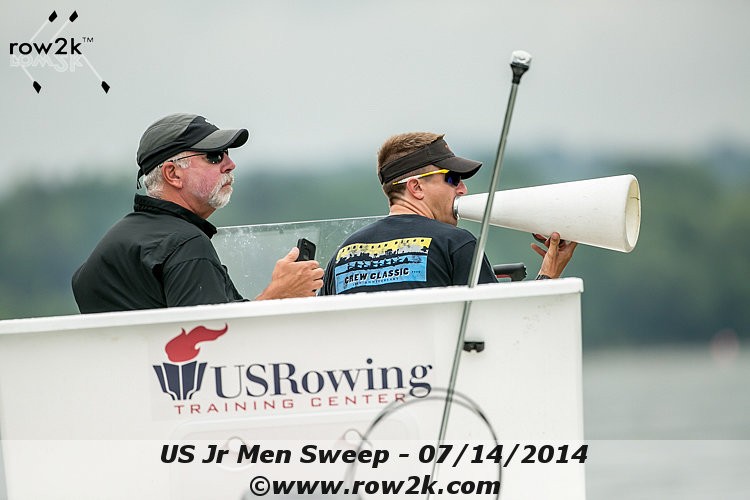
The first time Steve Hagis was hospitalized with kidney failure, he began thinking about the way he wanted to live his life.
He was a successful businessman, traveling the world. But that career came with a cost in time away from family, and a genetic kidney condition brought serious questions about his future - and not just how long he could survive, but how he wanted to live, what he really wanted to be doing.
Hargis was a rower. He captained three teams during his time as a cadet at the Coast Guard Academy, led the crew's intermediate eight to a win at the Head of the Charles in 1977, earned three varsity letters, and was a 2011 inductee into the Academy's Athletic Hall of Fame. He continued rowing after graduating, competing at an elite level. And when that ended, he rowed when time allowed.
But when his kidney gave out in 1997, it set him on a path that has shortened the lives of other Hargis men, and he realized he was no longer in control of his own future health.
"It was one of those moments of self-analysis," Hargis recalled. "What do I really want to do? I thought, this is something that you have. My father had three failed transplants. Like, I knew what the potential road could be, and that was one of the things I was thinking about.
"It was opening me up to thinking about wanting to be with my family, and what I really wanted to do. I wanted to be happy, to do what really made me happy. And business wasn't really doing that for me - spending all that time on airplanes, being away from home, missing holidays."
That moment led him back toward rowing. "It moved back to center stage for me."
Hargis lived in Connecticut near where Jim Dietz, an old teammate from his club rowing days and a former US national team sculler, was coaching Thames River Scullers from the boathouse at the Coast Guard Academy, and Hargis was given a part-time coaching position in the club's summer program.
He still had a career in business, and he still traveled, but Hargis made the boathouse his second home away from home. "He made it his boathouse," Dietz said. "I was coaching there full time. But he was there more than I was."
Then two big events happened in 1999; a kidney transplant and an opportunity opened to take over the Coast Guard Academy women's program. And he was facing a decision about his future.
"I was on dialysis, for three years because the kidneys had failed," Hargis said. "Then I had the transplant, and that became the greater awakening - I was thinking, do I want to continue this rowing thing as a full-time career, and force myself to continue down the path in the business world? Or do I want to do this coaching thing full time?"
As he was lying in the hospital, considering the choices, the first two people to reach out to him to ask how he was feeling were two rowing pals, Dietz, and Bill Stowe. "They weren't the ones that said, 'you should do this,' but that's the way it happened. The first two people to call me were rowing people. And I thought, let's do this."
Dietz doesn't necessarily remember it quite the same way. "I don't remember it exactly, but I remember sending him a case of beer."
It was the beginning of a successful career, that saw his Coast Guard team earn entry into five out of six NCAA DIII Championships, win two NEWMAC championships and three women become DIII First Boat All-Americans. Hargis was recognized as the NEWMAC Coach of the Year in both 2003 and 2007, as well as the DIII National Coach of the Year in 2003.
Those are big moments of recognition for any coach, but this weekend Hargis will be recognized for what most people involved in rowing in the US will always see as his biggest contributions to the sport - his development of the United States Junior National Team into one of the most successful international rowing programs in the world.
"He's put the United States back on the map," said Dietz, who became the head coach at the University of Massachusetts after leaving Connecticut.
"This is where I believe where the strength of the country is, in the juniors. We have to look at the total package. Engaging these kids as juniors, moving them up to U23 and then letting them step up to the seniors."
Hargis, who is now USRowing's Director of Under 19 High Performance Programs, will receive USRowing's Man of the Year Award Saturday at the association's annual convention in San Diego. The award will recognize Hargis' efforts to develop the Junior National Team system over the last 20 years.
"I was a little taken aback by the whole thing," Hargis said. "I really have invested the better part of my life with this, but the rewards have been fulfilling. The hardest part about this award is I wish I had every coach there with me that ever coached for us, that have made this thing happen for us over the last decade, or two. Because, this isn't like a single point in time. This is a continuum, and the coaches we've worked with have made this thing really move."
Where It Began
To understand the entire picture of Hargis' involvement in the junior program, the clock should be turned back to 1999, the same year he had the transplant, and the same year he decided to make the jump to coaching full time.
That summer, a bid went out to programs around the country to host a USRowing Junior Women's Development Camp. Hargis was unsure about taking on the role, but his boatman at Coast Guard at the time, the late W. Hart Perry - a man who was himself a giant in American rowing with a vision for the future - convinced Hargis to take up the challenge.
"They wanted three or four of them around the county," Hargis said. "I wasn't quite sure, but I got a chance to talk to my boatman at the academy, he talked to me at length, and said 'you have to do this.' And that was Hart Perry.
With Perry's support and help, Hargis was given the opportunity, and he has been a huge part of the junior program since. "We decided to do it, and that was it. Hart was with me every step along the way. Hart was my confidant. Hart was my source of energy. He really knew where he wanted to take this, and he needed people to help him. And that's how we started to build things."
Over the next several years, Hargis, began to change the way the junior women's program ran. He established a system of identification camps, and increased the test scores required to be selected.
He oversaw the establishment of a multi-tiered program that had a development mentality geared toward early identification of potential talent that provided athletes with the opportunity to race in crews at World Championships, or in development groups competing at other smaller international regattas and summer domestic national championships.
One of his first moves was to change the selection procedure to the CamAmMex Regatta. Where it was once comprised mostly of athletes from selection camp that did not make a World Championship crew, Hargis only allowed girls who were age eligible to return to selection camp the following summer to be selected.
"I took CamAmMex from the gift you got if you were the last ones cut from selection camp, to where only girls who had age eligibility for the next year could go," Hargis recalled. "It became a development program, and we knew that development was really important. We had to have these steps along the way, the athletes had to meet these next steps and development goals to continue."
Hargis said the changes were not easy, nor were they welcomed at first. When he first lowered erg score requirements and set age eligibility standards, "we took a lot of heat." But Hargis said one of the most important changes to create his development system was about changing the culture and expectations of the team.
"We didn't match the motivations of the other countries. Our motivations didn't match their motivations," he said. "We spent years changing that, teaching the kids that the motivations have got to match. We can't be just a bunch of US people who want to go and enjoy Europe. We had to go there with one thing in mind, and that is to win a medal for the United States of American. And that takes a different mindset in every practice, when sitting on the line, and in every race that you have."
Under Hargis' guidance, crews began making more A finals and winning medals and he stayed with the junior women until 2008 when the US won the junior women's eight at Worlds for the first time.
Hargis does not easily take credit for these successes. Instead, he points to the coaches who came in along the way, who bought into the idea of a "system of development," and who were also given the chance to have input and to grow as coaches themselves.
Connecticut Boat Club's Liz Trond is one of those coaches, and is now the head coach of the Junior Women's Program. Trond, like Hargis, started in the development program and served as an assistant coach until she was tapped to head the junior women in 2010.

Trond saw all the systematic and programmatic development happen and credits Hargis with its design and implementation.
"There would be no system right now without Steve," Trond said. "Steve is the linchpin that holds it all together. And Steve is the boss that everybody want to work for." Trond said the junior national team before Hargis, was basically a program that went from summer to summer and was coached by whichever coach was interested at the time.
"The way it used to work was, whoever the junior team coach was - and there were good coaches - they would coach that year. And if they wanted to do it again, they would, or not. So, it was kind of piecemeal.
"And, certainly it was not a full team," she said. "Maybe they brought an eight and a four to worlds, and maybe there was pair that came out of trials, or maybe there was a single and double, and maybe there wasn't. There was never a concerted effort to be the best team in the world."
Hargis changed all of that, Trond said.
"His plan was to start a development system, so it wasn't always based on who do we have this year, who do we have next year. When he took over as the girl's head coach in 2004, he had names on paper. And, that's kind of how it started.
"And then it moved into a whole different world," she said. "The thing about Steve, and I mean this in a good way, is that enough is never enough. It's really fun to work with him, and I don't always agree with all his ideas, and we don't always do all of his ideas, but it is fun to work with somebody who is always throwing out five or six things in terms of development that might work and says, let's talk about them.
"He's always working to build the development, build the base," Trond said. "To see where it has gone from the beginning to where it is now is craziness. And I really think that is all because everybody wants to be part of it. Everyone wants to work for Steve."
Jumping to the Junior Men's Program
Hargis stayed with the women's teams until 2008, when he was asked to take stewardship of the junior men's program. And, like he did with the junior women, Hargis replicated the development of a system.

"We wanted to build a mirror image of what we had developed for the girls," he said. "We worked very hard in a short amount of time to create the same environment, and Hart Perry and the NRF (National Rowing Foundation)were 100 percent behind making that happen.
"And that was how the next phase started," Hargis said. "We finished out with the goal of making them a mirror image of each other," he said.
The result is a single team that follows the same system, and it is producing. Over that quadrennial (between the 2012 and 2016 Olympics) the junior team won 15 medals, five more than the previous four year cycle.
"And we had a lot of firsts," he said. "The sculling crews started winning and going from fourth to third, there were crews making A finals that never made A finals before. It was just a series of firsts."
And the progress has continued. In the two years since the start of the 2020 quadrennial, the junior team has won a total of 10 medals. The seven won this past summer was the most ever and led the medal table. And there were more firsts; including first-ever two golds, most medals won, and a medal won by every boat that made a final.
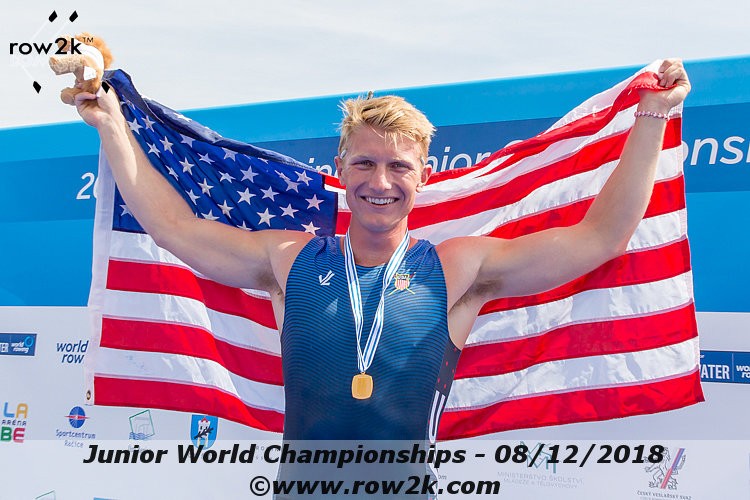
All of what Hargis has built and, continues to build, is now helping to build the future of US national team program overall.
"Steve's involvement and leadership, combining the two programs, and his passion to do this, really shows through," said Matt Imes, who oversees the US national team high performance groups, and who has been part of the junior building effort from the start. "He is really committed.
"How he has drawn the men and women's programs in line together, combined them the way that they have, has made a huge impact in the last five or six years on the junior program and what they've been able to accomplish," he said.
"This U19 effort under Steve continues to evolve. And it's starting to reach down into the U16 and U15 levels and is setting a standard for what it means, and what it would take, to compete on a national team," Imes said.
"If your goal is to make the Olympic team, I think Steve and the junior program really starts the process to answer the question of 'how do I get there.' There is no question that it's been really beneficial for national team development. And I think with what the juniors are doing right now, we will really reap the rewards for the 2024 and 2028 Olympics," said Imes.
What Comes Next
Today Hargis is still grinding away toward the end of this cycle and he is starting to think of an exit plan for himself. What happens after 2020 is an unknown at this point in his career.
Hargis turned 60 in August. He has outlived the expectancy of the 1999 kidney transplant, and he is the first man in his family to live past 58. He is a father and a grandfather - times two - and while the pull of rowing continues to have his attention, he wants more family time, more grandfather moments.
"I'm feeling pretty good about myself right now," he said. "And this award is a great honor."
But, as is his way, it is not recognition he wants to himself.
"Every one of these coaches we worked with took a whole new approach every year, they would see kind of where they ended up and where they wanted to go, and if they weren't going to do it, they found someone to take their place that would," he said.
"You can say that the program is athlete-centric but it's coached based. If they coaches didn't give their time and energy, and to create the understanding of what the goals were, this would not have happened. It could not have been a one man job, it just couldn't be. The success has been on what the coaches wanted to bring to the table, and they energy they brought."
If you enjoy and rely on row2k, we need your help to be able to keep doing all this. Though row2k sometimes looks like a big, outside-funded operation, it mainly runs on enthusiasm and grit. Help us keep it coming, thank you! Learn more.
Comments | Log in to comment |
- Bont Rowing
- Calm Waters Rowing
- Concept 2
- Craftsbury Sculling
- The Crew Classic
- CrewLAB
- Croker
- Durham Boat Co.
- Empacher
- Faster Masters
- Filippi
- Fluidesign
- h2row.net
- HUDSON
- Live2Row Studios
- Nielsen-Kellerman
- Oak Ridge RA
- Peinert Boat Works
- Pocock Racing Shells
- Race1 USA
- RowKraft
- Rubini Jewelers
- Vespoli USA
- WinTech Racing
- Bont Rowing
- Calm Waters Rowing
- Concept 2
- Craftsbury Sculling
- The Crew Classic
- CrewLAB
- Croker
- Durham Boat Co.
- Empacher
- Faster Masters
- Filippi
- Fluidesign
- h2row.net
- HUDSON
- Live2Row Studios
- Nielsen-Kellerman
- Oak Ridge RA
- Peinert Boat Works
- Pocock Racing Shells
- Race1 USA
- RowKraft
- Rubini Jewelers
- Vespoli USA
- WinTech Racing






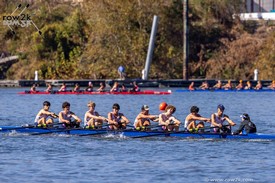
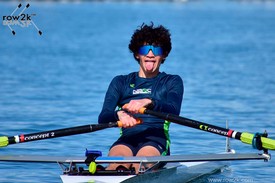
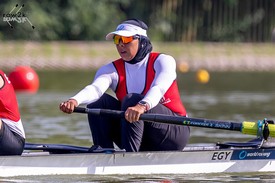
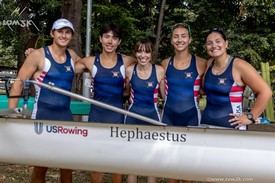








12/12/2018 1:02:47 PM
So incredibly well deserved. You have brought the US development program to a place that cultivates the best rowers in the country!!
Jo
12/07/2018 10:07:35 AM